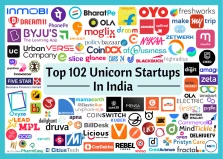
 Dec 14, 2024
Dec 14, 2024
 Medisine
Medisine
To secure a job in Human Resources (HR) management
To secure a job in Human Resources (HR) management, focus on developing the following skills, qualifications, and experiences:
1. Educational Background
- Obtain a relevant degree: A bachelor's in Human Resources, Business Administration, Psychology, or a related field is essential. A master's degree in HR management or an MBA with an HR focus is often preferred for managerial roles.
- Certifications: Earn certifications like SHRM-CP, SHRM-SCP, PHR, or SPHR, which demonstrate expertise and commitment to HR practices.
2. Core HR Skills
- Recruitment & Talent Acquisition: Understand how to attract, evaluate, and hire top talent.
- Employee Relations: Learn to handle conflicts, maintain morale, and foster a positive workplace culture.
- Compliance Knowledge: Familiarize yourself with labor laws, workplace safety regulations, and employment standards.
- Performance Management: Develop strategies for employee evaluations and feedback.
- Compensation & Benefits Management: Gain knowledge of salary structuring, benefits administration, and incentives planning.
3. Soft Skills
- Communication: Master verbal and written communication for effective interaction with employees and stakeholders.
- Leadership: Build skills to lead teams, drive initiatives, and manage organizational changes.
- Problem-Solving: Be adept at resolving workplace issues tactfully and efficiently.
- Empathy: Cultivate the ability to understand and address employee concerns.
4. Experience
- Gain entry-level HR experience in roles such as HR assistant, recruiter, or HR generalist.
- Participate in internships to gain hands-on experience with HR systems and practices.
- Volunteer for roles involving team management, event planning, or conflict resolution to demonstrate HR-related skills.
5. Networking
- Join HR organizations like SHRM, HRCI, or local HR associations to network with professionals.
- Attend HR webinars, workshops, and conferences to stay updated on trends and best practices.
- Use platforms like LinkedIn to connect with HR professionals and learn about job openings.
6. Tech Proficiency
- Learn to use HR software and tools such as Workday, BambooHR, ADP, or SAP SuccessFactors.
- Develop familiarity with Applicant Tracking Systems (ATS) and HR analytics tools.
7. Build a Professional Portfolio
- Create a compelling resume and cover letter highlighting relevant skills, certifications, and achievements.
- Prepare for HR-related interview questions and scenarios, such as resolving conflicts, implementing HR policies, or dealing with compliance issues.
By focusing on these areas and staying updated with HR trends, you can position yourself as a competitive candidate in HR management.
Share This Post
Top Categories
Exam Preparation
(1)
Career
(20)
Sales
(1)
Edtech
(1)
Fintech
(1)
Business
(2)
AI
(2)
Training
(5)
Project Manager
(1)
Popular Tag
Recently Post

How to Prepare for Exam ?
Mar 8, 2025
ਭਾਰਤ ਵਿੱਚ ਸਟਾਰਟਅੱਪ ਦੁਆਰਾ ਦਰਪੇਸ਼ ਪ੍ਰਮੁੱਖ ਸਮੱਸਿਆਵਾਂ ਅਤੇ ਉਹਨਾਂ ਦੇ ਹੱ...
Dec 29, 2024
భారతదేశంలో స్టార్టప్లు ఎదుర్కొంటున్న ప్రధాన సమస్యలు మరియు వాటి ప...
Dec 29, 2024
ഇന്ത്യയിലെ സ്റ്റാർട്ടപ്പുകൾ നേരിടുന്ന പ്രധാന പ്രശ്നങ്ങളും അവയുടെ...
Dec 29, 2024
இந்தியாவில் ஸ்டார்ட்அப்கள் எதிர்கொள்ளும் முக்கிய பிரச்சனைகள் மற்ற...
Dec 29, 2024
ಭಾರತದಲ್ಲಿ ಸ್ಟಾರ್ಟ್ಅಪ್ಗಳು ಎದುರಿಸುತ್ತಿರುವ ಪ್ರಮುಖ ಸಮಸ್ಯೆಗಳು ಮತ್ತು...
Dec 29, 2024
ଭାରତରେ ଷ୍ଟାର୍ଟଅପ୍ ଏବଂ ସେମାନଙ୍କର ସମାଧାନର ମୁଖ୍ୟ ସମସ୍ୟା |
Dec 29, 2024
भारत में स्टार्टअप्स के सामने आने वाली प्रमुख समस्याएं और उनके सम...
Dec 29, 2024
ভারতে স্টার্টআপদের প্রধান সমস্যা এবং তাদের সমাধান
Dec 29, 2024





 Sign In
Sign In